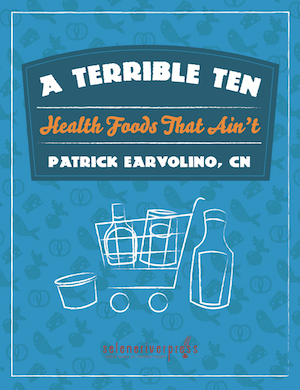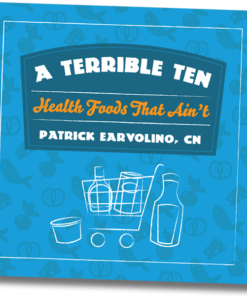By Congressman David S. King

Health of the American People
Speech of Honorable David S. King of Utah in the House of Representatives, Wednesday, September 9, 1959.
Mr. Speaker, I am greatly concerned over America’s health, and this concern now prompts me to take the floor of this great legislative body to say what I think needs to be said. America’s health is in danger, and if the warning signals apparent to all are not heeded, we risk physical and mental deterioration—and inevitable capitulation to the virile and more rugged peoples of the world.
It is true that life expectancy from birth in America has increased from a span of 47 years in 1900 to 65 years for males and 72 years for females, in 1959. In other words, if we could designate such a thing as an average boy baby, that baby could expect to live some 18 years longer if he were born in 1959 than he could have expected had he been born in 1900. It is also true that this average boy baby will probably grow to be 2 or 3 inches taller than his grandfather, and perhaps a little heavier.
These statistics, which are generally known, lead to the false impression that we are a more healthy, robust, and virile generation of people than were our ancestors. This increase in longevity, however, results from the impressive advances made in obstetrics and pediatrics, which have considerably reduced the rate of infant mortality. We have also made phenomenal progress in controlling the spread of contagious diseases, through a better understanding and elimination of their causes.
However, it should be noted that the set of statistics showing that our life expectancy has jumped from 47 years to 65 years also shows that once a man has reached the age of 63, the chances of his life being substantially prolonged are no better now than they were 50 years ago, and the chance of his life being cut short by one of the well-known chronic degenerative diseases is substantially higher than it was 50 years ago.
In May 1955 Dr. Paul White and Dr. Norman Jolliffe, eminent scholars in their field, reported to Congress that the United States was one of the most unhealthy countries in the world in regard to coronary heart disease. The incidence of heart disease among men from 45 to 65 years, they said, was two to three times higher in the United States than in England, France, Germany, Italy, or Spain.
In a paper in the New York State Medical Journal dated September 15, 1955, Dr. Jolliffe continued his report by stating that “although in America today life expectancy at birth is near the best of any civilized country in the world, at the age of forty, life expectancy [in America] is near the bottom.”
On July 24, 1957, Dr. W. Coda Martin, president of the American Academy of Nutrition, appeared and testified before the Subcommittee on Health and Science of the House Committee on Interstate and Foreign Commerce. During the course of his testimony, Dr. Martin submitted a copy of his report the “Health of the Nation” for incorporation into the record. This report showed that according to the Cancer Institute the incidence of cancer in the United States is growing alarmingly every year.
Today, one person out of every three in this country will probably develop cancer in some form before he dies. In 1940 the estimate was only one out of four. It was noted that there has been a sharp upturn in the number of occurrences of cancer among children. In 1923 cancer among children was a rarity. Today, cancer in children and babies at birth is a frequent occurrence. Recently, Boston opened the first hospital in the United States exclusively for the treatment of children with cancer. It is estimated that there are 500,000 new cases, over all ages, each year.
The fact of the progressive deterioration of the condition of our health has been confirmed, according to the above report, by various scientifically conducted health surveys on groups of apparently healthy people. For example, a checkup of 500 business executives, whose average age was 48 years, at the University Hospital in Ann Arbor, Michigan, revealed that 41 percent of them suffered from physical diseases of which they were not aware, and 77 percent of these healthy men had some form of physical abnormality. Only 23 percent were in good physical health.
Dr. Martin, in his testimony before the above-mentioned subcommittee, made the further statement:
“This health problem is not confined to the older age group. In 1953 draft director Lewis B. Hershey stated that the nation may be ‘out of manpower’ in the next 2 to 3 years if the present physical standards are not lowered.
“At that time 1.7 million men, out of 4 million examined, were rejected as unfit for service. Since then rejections have reached approximately 52 percent.”
If I were to continue to itemize and tabulate the dreary statistics covering allergic diseases, nervous disorders, arteriosclerosis and degenerative heart diseases, arthritis, epilepsy, and all of the other gloomy categories of human woes and ailments, I would come to the conclusion that well over half of our entire population is afflicted with some type of chronic disease.
I must acknowledge that I lay no claim to special insight into the answers to this frightening problem. There are many gifted scientists who have spent their entire adult lives exploring the fields of pathology and who avoid dogmatism on the matter of causation.
Nevertheless, from what study I have done, and basing my opinion solely on the conclusions of dedicated men of science who do qualify as experts, I am convinced that the contaminants, additives, and toxic chemical compounds taken into the human body in connection with our regular food and drink are in large measure responsible for the deplorable deterioration of our national health.
I have neither the ability nor the space to brief [Congress on] the abundance of technical literature available on this subject. Perhaps I may quote again, however, from the above-referred-to report of Dr. Martin, as reported in the subcommittee hearings of July 24, 1957:
“There are many approaches to the prevention and treatment of such complex diseases, but there appears to be one common denominator as the basic cause of degenerative diseases. That one factor is malnutrition.”
Referring specifically to the chemicals that are added to the foods we eat, Dr. Martin said:
“I also believe that the absorption of these toxic chemicals—there are 704 different chemical compounds used in foods, and 150 of them have never been adequately checked for their toxic effects on humans—over a long period of time can cause serious tissue damage, which inevitably terminates in a degenerative disease. Many of these chemicals, although apparently nontoxic, have no nutritional value and do not serve a useful purpose for the consuming public. Their continued use therefore constitutes a calculated risk to human health if not life itself. The first line of defense must be to protect the health of the consumer; otherwise, the long-range calculated risk is that this country will become a nation of invalids, weak in body and mind.
“The human body can utilize only natural foods as nourishment and survive. Chemicals are not food elements. Therefore, they can produce only negative or harmful results, even though they are by scientific analysis nontoxic. It is then only a question of how much harm they will produce when used to replace essential food elements in our diets.”
When the American housewife wheels her cart around the supermarket, she is only dimly aware, if at all, that it is almost impossible for her to purchase any article of food that has not had chemicals, bleaches, preservatives, additives, dyes, adulteratives, and other foreign substances added to it. Until last year the law was so worded that any new chemical compound that was not a known poison could be added to any food for consumption, and the burden then fell on the Food and Drug Administration (FDA) to prove that these foreign substances were deleterious to human health.
This proof was difficult to adduce, from a legal point of view, even when immediate toxicity could be demonstrated. But it was almost impossible to do when the toxicity of the chemical compound was of such a nature that it could not be detected until after the expiration of many years. Because of the outstanding work of the Delaney Commission, the “food additive amendment” [to the Food, Drug, and Cosmetics Act of 1938] was passed last year, which requires food processors to submit to the FDA the results of their tests on new chemical compounds. But the law is still filled with loopholes.
It seems to me that it takes only a slight leap of the imagination on the part of the American housewife to grasp the proposition that where the incidence of degenerative diseases such as cancer, arteriosclerosis, and degenerative heart disease suddenly increases—and apparently for no known reason—and where it is shown that contemporaneously with such increase there occurs a phenomenal increase in the total amount of chemical compounds consumed, then there may well exist a causal connection between these two phenomena.
I am quite aware of the fallacy of oversimplification, and I fully recognize the probability of a multiplicity of causes in any phenomenon as complex as disease. What I do say, however, is that the ever-increasing scientific evidence renders it highly probable that the invariable concurrence of disease and body contamination by the consumption of toxic chemicals is more than coincidental.
It is apparent that this entire subject requires a thorough investigation. The health—and maybe even the very survival—of the American nation is at stake. Our laws on nutrition are loose and inadequately drawn. Public knowledge is fragmentary and riddled with misinformation and discarded dogmas. The means of disseminating information on this subject are inadequate.
My illustrious colleague from New York Honorable James J. Delaney has pioneered in this field for many years and has uttered many strong words on this vital subject. I commend this distinguished gentleman for his well-known work and offer to join hands with him in his efforts. The American people owe him a debt of gratitude. The work of his outstanding commission in 1952 made a significant contribution, on the basis of which subsequent legislation has been enacted.
Since 1952, when the Delaney committee concluded its investigation, a flood of new chemical combinations have come on the market. I feel that a further investigation is urgent. I am convinced that the whole field of chemical additives should be made a subject of continuing investigation.
A bill has just been signed into law to investigate the effect of chemical sprays on fish and wildlife, and yet we spend almost nothing to investigate the effect of chemicals on human beings.
Mr. Speaker, on September 8th I introduced a bill, HR 9150, designed to create a nonpartisan commission to further investigate the entire subject of food and beverage contamination. I have recommended that this commission be appointed strictly on a nonpartisan basis—that it be patterned after the Hoover Commission, composed of nine experts in the field of toxicology, nutrition, and biochemistry. Three of these men will be appointed by the president of the United States, three of them by the majority and minority leaders of the Senate, and three by the Speaker [of the House] and minority leader of the House.
It will be the function of these men, assisted by their staff, to thoroughly investigate this matter of food chemicals and additives. There are many legitimate points of view in the world, and all points of view on this subject should have full opportunity to be heard. Their findings should represent the combined wisdom of all of the great minds in this and other countries in the field of nutrition. This should therefore be the most authentic and authoritative voice on the subject in all the world. The report will carry with it such recommendations as the commission feels impelled to make, and Congress would do well to give careful consideration thereto.
There has been much said about the matter of fluoridation of drinking water. As in the case of food additives, there is a plenitude of controversial literature on the subject. I personally feel strongly that because of the great controversy that accompanies the use of fluorides in drinking water, it would behoove this nation to await a thorough investigation of the entire matter before further promoting this practice.
It is my desire that the commission of which I speak also investigate the scientific concept of fluoridation of water. It is true that there have been other bodies and commissions that have investigated this question before, but many of them have been motivated by a desire to prove either that fluoridation is good or that it is bad. Too often the investigation has been conducted in a spirit of partisanship.
I propose that the investigation be made by a commission that has not prejudged the issues in any way but that is interested only in ascertaining the true facts. It seems to me that the findings of such a commission will be authoritative throughout the country and will help to guide the thinking of the many municipalities that are confronted by the problem of fluoridation.
And so the American nation has come a long way from the days when it was content to sit down and eat humble fare, transmitted to the kitchen direct from the hand of its creator and touched only by the magic of nature’s inscrutable chemistry—simple food, unpampered, and undevitalized. The rugged life and simple diet of the American pioneer have gone. We have replaced them with the unwholesome living of the modern sophisticate.
America would do well to reread the admonition of the apostle Paul to the Corinthians: “Know ye not that ye are the temple of God and that the Spirit of God dwelleth in you? If any man defile the temple of God, him shall God destroy; for the temple of God is holy, which temple ye are” (1 Corinthians 3:16, 17).
Mr. Wolf. Mr. Speaker, will the gentleman yield?
Mr. King of Utah. I yield to my distinguished colleague from Iowa.
Mr. Wolf. The gentleman from Utah again is to be congratulated. I am pleased that he is introducing legislation in this particular field. As one who represents a farm state and naturally is concerned with the production of food, we want folks to get the best food possible, and so I am glad the gentleman has gone into this subject. In my opinion the immediate consideration many times is taken and discussed, but beyond the immediate consideration, the long-term heredity effect is one that, it would seem, is most often overlooked.
Mr. King of Utah. That is correct.
Mr. Wolf. This is one thing that worries me. Just yesterday—and I was horrified to learn this—I discovered that they are using formaldehyde, a poison, in milk that is being served on the tables of many of our families in America. It is being used as a preservative for milk. This really shocked me. I had always thought of formaldehyde being used to preserve museum pieces and laboratory specimens. I did not realize that we were preserving our foods—the foods that we are putting into our stomachs to enhance our own body health—by the use of formaldehyde.
Mr. Speaker, again I should like to congratulate the gentleman on the work he is doing in this field. I hope he will be given support by other members of Congress. I know that several of us have expressed an interest in this field. My wife has done quite a little work with the Food and Drug Administration here in our office, gathering information together. I am happy to see the gentleman delving into this field. I hope we can seriously get on with this work, and for this reason, with the gentleman’s permission, I would like to cosponsor this needed legislation.
Mr. King of Utah. I appreciate the comments of my distinguished colleague, the gentleman from Iowa. May I say I would be happy to have his help by sponsoring and supporting my two bills.
By David S. King. Reprinted by the Lee Foundation for Nutritional Research from the Congressional Record: Proceedings and Debates of the 86th Congress, First Session, 1959. (Not printed at government expense.)
Reprint No. 111
Price – 5 cents
Lee Foundation for Nutritional Research
Milwaukee, Wisconsin 53201
Note: Lee Foundation for Nutritional Research is a nonprofit, public-service institution, chartered to investigate and disseminate nutritional information. The attached publication is not literature or labeling for any product, nor shall it be employed as such by anyone. In accordance with the right of freedom of the press guaranteed to the Foundation by the First Amendment of the U.S. Constitution, the attached publication is issued and distributed for informational purposes.
 Get self-health education, nutrition resources, and a FREE copy of A Terrible Ten: Health Foods That Ain't ebook.
Get self-health education, nutrition resources, and a FREE copy of A Terrible Ten: Health Foods That Ain't ebook.

